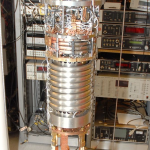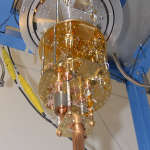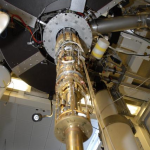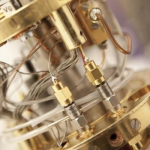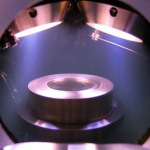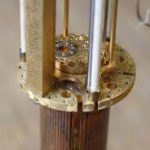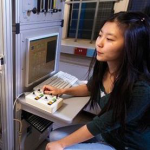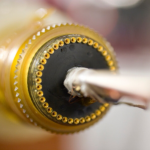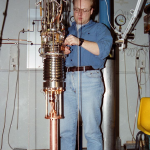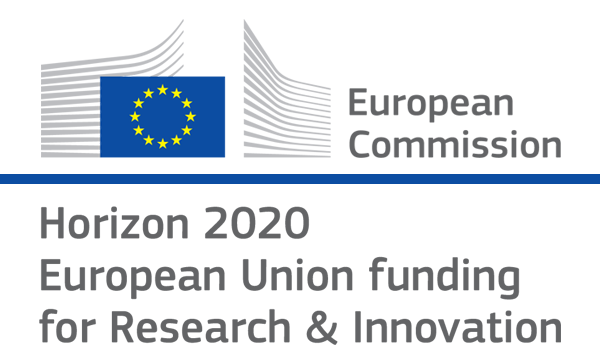

- Photon Transport in a Bose-Hubbard Chain of Superconducting Artificial Atoms
G. P. Fedorov et al., Phys. Rev. Lett. 126, 180503 (2021) - Path-Dependent Supercooling of the
He3 Superfluid A-B Transition
Dmytro Lotnyk et al., Phys. Rev. Lett. 126, 215301 (2021) - Superconductivity in an extreme strange metal
D. H. Nguyen et al., Nat Commun 12, 4341 (2021) - High-Q Silicon Nitride Drum Resonators Strongly Coupled to Gates
Xin Zhou et al., Nano Lett. 21, 5738-5744 (2021) - Measurement of the 229Th isomer energy with a magnetic micro-calorimeter
T. Sikorsky et al., Phys. Rev. Lett. 125 (2020) 142503
First results from the AMoRE-Pilot neutrinoless double beta decay experiment
V. Alenkov, H. W. Bae, J. Beyer, R. S. Boiko, K. Boonin, O. Buzanov, N. Chanthima, M. K. Cheoun, D. M. Chernyak, J. S. Choe, S. Choi, F. A. Danevich, M. Djamal, D. Drung, C. Enss, A. Fleischmann, A. M. Gangapshev, L. Gastaldo, et. al.
The advanced molybdenum-based rare process experiment (AMoRE) aims to search for neutrinoless double beta decay ( ) of
) of  Mo with
Mo with  of
of  Mo-enriched molybdenum embedded in cryogenic detectors with a dual heat and light readout. At the current, pilot stage of the AMoRE project we employ six calcium molybdate crystals with a total mass of 1.9 kg, produced from
Mo-enriched molybdenum embedded in cryogenic detectors with a dual heat and light readout. At the current, pilot stage of the AMoRE project we employ six calcium molybdate crystals with a total mass of 1.9 kg, produced from  Ca-depleted calcium and
Ca-depleted calcium and  Mo-enriched molybdenum (
Mo-enriched molybdenum ( ). The simultaneous detection of heat (phonon) and scintillation (photon) signals is realized with high resolution metallic magnetic calorimeter sensors that operate at milli-Kelvin temperatures. This stage of the project is carried out in the Yangyang underground laboratory at a depth of 700 m. We report first results from the AMoRE-Pilot
). The simultaneous detection of heat (phonon) and scintillation (photon) signals is realized with high resolution metallic magnetic calorimeter sensors that operate at milli-Kelvin temperatures. This stage of the project is carried out in the Yangyang underground laboratory at a depth of 700 m. We report first results from the AMoRE-Pilot  search with a 111 kg day live exposure of
search with a 111 kg day live exposure of  crystals. No evidence for
crystals. No evidence for  decay of
decay of  Mo is found, and a upper limit is set for the half-life of
Mo is found, and a upper limit is set for the half-life of  of
of  Mo of
Mo of  at 90% C.L. This limit corresponds to an effective Majorana neutrino mass limit in the range
at 90% C.L. This limit corresponds to an effective Majorana neutrino mass limit in the range  .
.
Eur. Phys. J. C 79, 791 (2019)
doi: 10.1140/epjc/s10052-019-7279-1
arxiv: https://arxiv.org/abs/1903.09483

